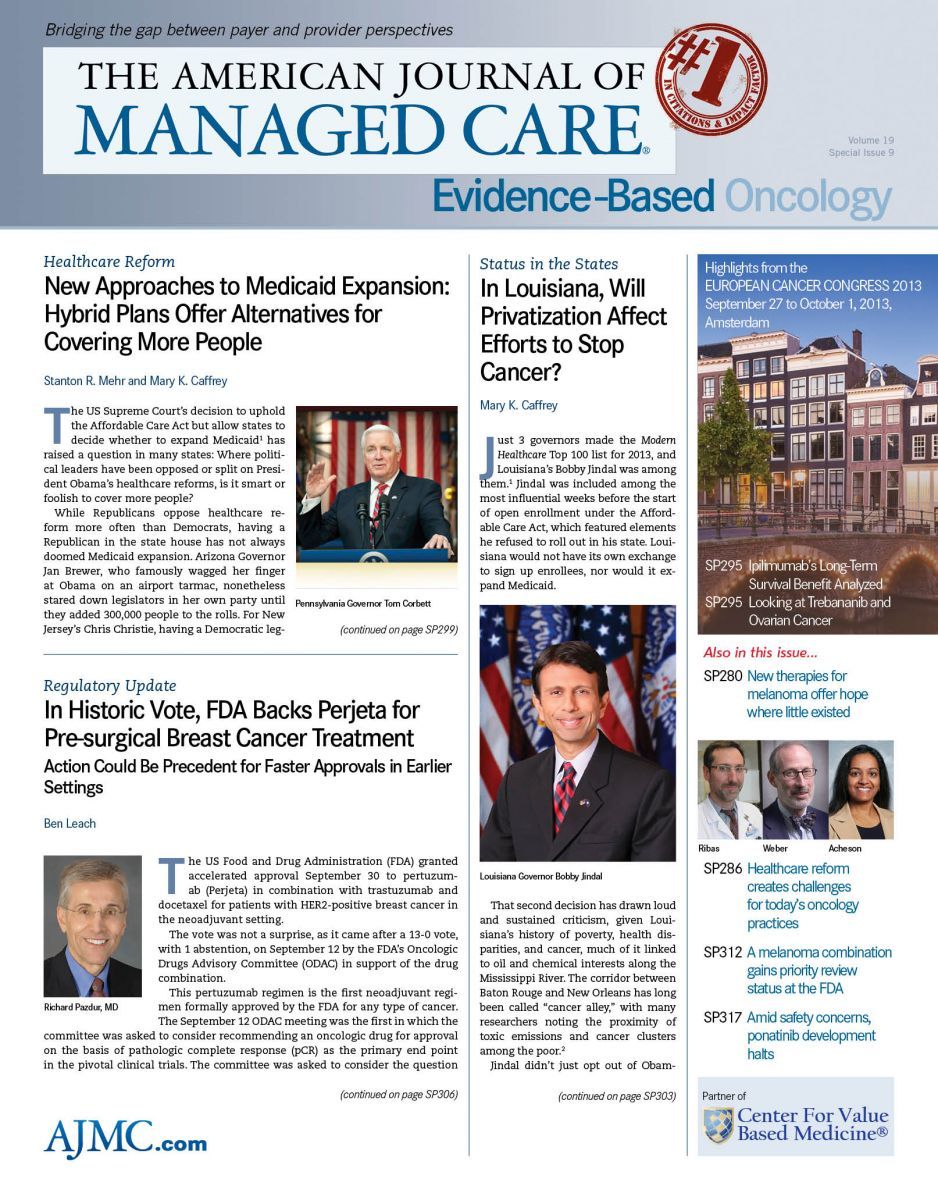- Center on Health Equity & Access
- Clinical
- Health Care Cost
- Health Care Delivery
- Insurance
- Policy
- Technology
- Value-Based Care
First Generic Version of Capecitabine Gains FDA Approval
The FDA has approved the first generic formulation of capecitabine (Xeloda), an oral chemotherapeutic that is currently approved to treat patients with metastatic colorectal cancer (mCRC) and metastatic breast cancer (MBC).
Genentech manufactures capecitabine, which became the first approved oral chemotherapy in 1998. The generic version of capecitabine will be marketed by Teva Pharmaceuticals USA at 150 and 500 mg doses.According to the FDA, on average, the cost of a generic drug is 80% to 85% lower than the brand name equivalent, amounting to billions of dollars saved on prescription drugs each year.
The patent for capecitabine is set to expire on December 14, 2013. The global sales for the agent have continued to rise since its approval. It is considered a “blockbuster” drug, a distinction reserved for treatments that generate more than $1 billion in annual revenue. To date, a generic version of the drug has not been made available.
“Generic drugs are important options that allow greater access to healthcare for all Americans,” said Kathleen Uhl, MD, the acting director of the Office of Generic Drugs in the FDA’s Center for Drug Evaluation and Research. “This medication is widely used by people living with cancer, so it is important to have access to affordable treatment options.
“Since its initial approval in MBC, capecitabine has become widely utilized in several settings. The drug is most well known for its use in combination strategies, specifically in HER2-positive MBC, where it is commonly administered along with lapatinib (Tykerb). As a single-agent, capecitabine has demonstrated efficacy as a first-line therapy for patients with mCRC, following complete resection of the primary tumor when fluoropyrimidine therapy is preferred, and as a treatment for patients with HER2-negative MBC following prior treatment with anthracyclines and taxanes.
Even though the drug has been widely available for more than a decade, investigators are continuing to assess the drug’s efficacy in multiple ongoing clinical trials. As of today’s approval, the chemotherapy is being examined in combination or as a single-agent in over 300 open studies across a variety of diseases. Although the drug is not specifically FDA approved for other indications outside of breast cancer and colorectal cancer, capecitabine is widely used as a treatment for patients with gastric cancer in the first-line setting and in combination with oxaliplatin for patients with stage II to IIIb disease.
The standard schedule for capecitabine is 8 cycles of 1250 mg/m2 administered orally twice daily for 2 weeks followed by 1 week of rest. The most common adverse reactions with capecitabine are diarrhea, hand-and-foot syndrome, nausea, and vomiting. Additionally, the medication has a boxed warning regarding an adverse capecitabine and anticoagulant interaction.

Quality of Life: The Pending Outcome in Idiopathic Pulmonary Fibrosis
February 6th 2026Because evidence gaps in idiopathic pulmonary fibrosis research hinder demonstration of antifibrotic therapies’ impact on patient quality of life (QOL), integrating validated health-related QOL measures into trials is urgently needed.
Read More
Exploring Racial, Ethnic Disparities in Cancer Care Prior Authorization Decisions
October 24th 2024On this episode of Managed Care Cast, we're talking with the author of a study published in the October 2024 issue of The American Journal of Managed Care® that explored prior authorization decisions in cancer care by race and ethnicity for commercially insured patients.
Listen
Building Trust: Public Priorities for Health Care AI Labeling
January 27th 2026A Michigan-based deliberative study found strong public support for patient-informed artificial intelligence (AI) labeling in health care, emphasizing transparency, privacy, equity, and safety to build trust.
Read More

